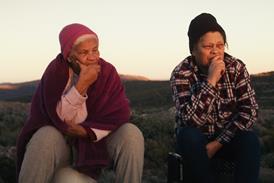A joint venture of communications giant Qualcomm and film processors Technicolor this week unveiled an ambitious plan to kick-start the digital conversion of the exhibition industry by installing and maintaining the necessary equipment free of charge in a thousand US theatres. But, despite acknowledging the global dimension of the exhibition business, the partners have not extended the offer overseas .
This week's headline-grabbing ShoWest initiative, which is being rolled out through their joint-venture company Technicolor Digital Cinema (TDC), was carefully tailored to appeal to both US exhibitors and their studio suppliers - camps that are still battling of who should assume financial responsibility for the expensive transition to digital projection.
TDC tried to demonstrate that its conversion offer is a win-win for both sides of the distribution equation. One thousand as-yet-unspecified theatres will be equipped for free with the latest in digital transmission technology, that will then maintained by TDC also without charge. Without such an offer, such equipment would be prohibitively costly to install, with estimates put at anywhere up to $150,000 per theatre.
In return, theatres that agree to the offer will pay TDC a nominal 12.5 cents for every patron that watches a digitally projected film at the theatre location. TDC claims that 12.5 cents per admission is how much exhibitors would save in areas such as bulb replacements by adopting a digital system.
At a ShoWest press conference, TDC president Dave Elliott also emphasised that studios stood to gain from the proposals. TDC is just as keen to woo distributors since the studios need to be convinced that delaying post-production another few weeks to deliver an additional digital master makes sense economically. Based on a 25% savings target, Elliott said that distributors could cut their costs on a 2,000-print digital film by $600,000. As a result, said Technicolor CEO Lanny Raimondo, "we will get a discount on their film prices".
Any technical doubts were quashed by TDC's crowd-wooing demonstration at Las Vegas' Paris Hotel, which saw crisp digital images projected onto a 60 foot screen from some 310 feet away. During an event which included clips from John Woo's Windtalkers and John Herzfeld's 15 Minutes, TDC also demonstrated the potential of ancillary screenings - an oft-touted source of extra revenue for digitally equipped cinemas - projecting clips from a concert by Pink Floyd member Roger Waters.
The breathtaking visuals may have silenced technical naysayers, but doubts still remain about whether the spectacular quality of digital images will change the cinema-going habits of average popcorn audiences.
TDC did not reveal a strategy for which theatres would take part in the roll out, although it clarified that it was aiming for a national footprint.
Colin Brown in Las Vegas contributed to this report.



















No comments yet